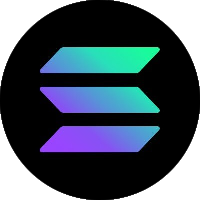
Acheter Obyte grâce à Coinbase Wallet
L'actif Obyte peut être tradé grâce à Coinbase Wallet, qui vous ouvre les portes du monde des cryptomonnaies.
L'actif Obyte est uniquement accessible via Coinbase Wallet. Coinbase ne détient pas vos actifs sur Coinbase Wallet, et l'utilisation du portefeuille est soumise à ces conditions.
À propos de Obyte
Recevez jusqu'à 200 USD pour commencer.
Obtenez gratuitement des cryptomonnaies après avoir effectué votre premier achat. Des conditions s'appliquent.

Somme des économies et récompenses médianes estimées obtenues par utilisateur en 2021 sur plusieurs programmes Coinbase (sans compter les tirages au sort). Ce montant inclut les exonérations de frais de Coinbase One (sans les frais d'abonnement), les récompenses de Coinbase Card et les récompenses de staking.
Marché
Actualités sur Obyte
Actifs liés
Calculatrice de Obyte
Coinbase Bytes
Le Obyte est en hausse cette semaine.
Le cours actuel de GBYTE est de 9,24 $US, avec un volume de trading de 474,05 $US sur 24 heures. Actuellement, la valeur de Obyte est inférieure de 99,23 % à son record historique de 1 195,99 $US. Ce record historique correspond au prix le plus élevé payé pour l'actif Obyte depuis son lancement.
L'offre en circulation actuelle de Obyte est de 858 982,427 GBYTE, ce qui signifie que la capitalisation boursière totale de l'actif Obyte s'élève à 858 982,427.
FAQ
Découvrir les profils ENS
Entrez dans l'univers des profils Ethereum Name Service (ENS). Connectez-vous, développez vos connaissances et interagissez avec la communauté du Web3 sur profile.coinbase.com. Découvrez ci-dessous certains des profils ENS les plus populaires.
Certains contenus ont été élaborés par des tiers non affiliés à Coinbase Inc. ni à l’une de ses filiales, et Coinbase n’en est pas responsable. Coinbase n'est pas responsable des erreurs ou des retards de contenu, ni des mesures prises sur la base d'un contenu quelconque. Ces informations sont communiquées à des fins informatives uniquement, elles ne constituent pas un conseil d'investissement. Elles ne visent à vous recommander ni d'acheter ou de vendre un actif numérique donné, ni d'adopter une certaine stratégie d'investissement. Coinbase ne fait aucune déclaration concernant l'exactitude, la pertinence ou le caractère valable des informations fournies ou concernant un actif donné. Les prix sont indiqués à titre illustratif uniquement. Les prix réels des cryptomonnaies et les statistiques associées peuvent varier. Les données présentées peuvent refléter les actifs négociés sur Coinbase et sélectionner d'autres plateformes d'échange de cryptomonnaies.


















































